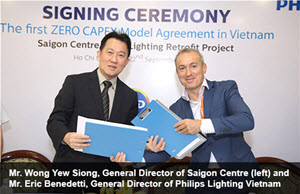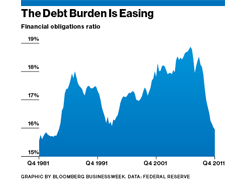
If you are not a marketing or PR person and have never bought these services before and truly have no idea what things cost, feel free to ask the vendor to give you a ballpark idea of costs, knowing that the ultimate cost will vary depending on the shape of the program you pursue.
If you need help with your public relations campaign and you can’t do it alone, hiring a publicist or other service provider is often a wise decision.
Here are some handy tips to keep in mind when buying PR-related products or services such as the ones that are included on The Publicity Hound’s Resources List.
1. Know your budget
If you call a company you might want to do business with, and the person to whom you’re speaking asks ‘What’s your budget?’, that’s not a trick question. They’re simply trying to determine whether you can afford their products or services before they spend 20 minutes on the phone with you, then discover they’re way out of your price range.
Some people who need help with press releases, for example, can only afford to pay someone $50 to write the release. Yet I don’t know of one professional writer who would write a release for only $50.
If you don’t know exactly how much you can spend, state a range. That way, the service provider can determine if there’s anything they can do for you within your budget.
If you are not a marketing or PR person and have never bought these services before and truly have no idea what things cost, feel free to ask the vendor to give you a ballpark idea of costs, knowing that the ultimate cost will vary depending on the shape of the program you pursue.
2. Contact several vendors
The more companies you contact, the more choices you’ll have in the end. If you can get a referral from a friend or business associate who loves working with a certain company, that will save you a lot of time. But most people looking for publicity products or services aren’t that lucky.
I advise talking to three companies regarding the types of public relations services or products they provide. Prepare a list of questions before you call, and ask them all the same questions. If you’re buying media reference directories, for example, in what format is the information available? And exactly what types of contact information does the directory provide? Can you see a sample listing at their website? Can you take a free or inexpensive test-drive before you make your decision?
Hiring a publicist is trickier, and can be much more expensive. The most important consideration is the chemistry between you and your publicist. That is, how well you can work together. My ebook ‘How to Hide the Perfect Publicist’ includes detailed step-by-step directions on how to find publicists, how to interview them, how to rate your top candidates, how publicists charge for their services, and how to work with a publicist after you’ve hired her.
When calling publicists on my resource list, be sure to ask if they have contacts with the kinds of media outlets where you want publicity. Many publicists also specialize in one or more areas such as book publicity, publicity only for non-fiction, or business-to-business publicity.
Finally, before you sign a contract with a publicist, make sure you understand the publicist’s policy on sharing their media contact information with you. Most publicists do not--and should not--turn over their media contact information to clients. Many of these media contacts have taken the publicist years to cultivate. I’ve spoken with people who have hired publicists and were disappointed to learn months later that they wouldn’t have access to the publicist’s list of contacts.
3. Ask for references or samples of their work
It’s OK to ask for names and contact information of other clients a company has worked with. Some providers won’t give out that information unless they know you’re seriously considering them for the job, however, because they don’t want their clients to be bothered needlessly. Visit the website of any company you’re thinking of doing business with. You might find lots of testimonials, which add to their credibility.
4. Don’t expect a lot of valuable information for free
Occasionally, people (usually authors) call me and ask if they can spend time ‘picking my brain’ for ideas on how to publicize their books. In other words, they want my great ideas for free.
Don’t expect companies to spend a lot of time with you talking about your publicity campaign and sharing their best strategies for your particular situation unless you’re willing to pay for it. Most of the time, companies that provide these service can’t possibly know what you need until they interview you. And that takes time.
While vendors get paid to have their brains picked, don’t expect them to give you a detailed media plan unless you pay for it. You can, however, ask them questions to get a sense of how they think. You might ask them to tell you a story of a client they helped in a similar way you want to be helped.
If you’re wondering whether a publicist is a good match with you, ask if they do hourly consulting and if you can set up a telephone consultation. Not all publicists offer this service, however. And if they don’t, that shouldn’t eliminate them from the running. Instead, ask for references. Then talk to their clients and ask lots of questions about the kinds of results the publicist achieved.
5. Consider more than just price
Base your final decision not only on price, but on value.
For example, let’s say you’ve contacted two companies about writing and distributing an online press release, and their prices are about the same. If one of the two writers knows how to optimize your press release for the search engines, and he can show you a press release he has written that has gotten a high ranking on Google or another search engine for specific keywords, that company would provide the better value.
Consider the vendor’s industry experience and knowledge. The more they know, the less you’ll have to educate them. If the job is media relations, ask them about their media contacts in the industry: who they know and how successful they’ve been at pitching.
Also, ask about all the intangibles that are important to you:
- If you like ‘reports,’ ask them how comfortable they are at ongoing, thorough reporting.
- If you really care about return on investment, ask the vendor how they measure this.
- If you’re a last-minute manager, ask how well they deal with crises. This will give you some idea of how well you may work with them, personally and professionally, over time.
6. Don’t assume you know what you need
Many people assume that if they want coverage in the media, they need to write and distribute press releases. So they go looking for a press release writer. Press releases are only a tiny part of a public relations campaign, however. And the truth is, one-size-fits-all press releases seldom result in the kind of publicity people want, like big feature stories in a newspaper or magazine.
A well-written press release that’s posted online can bring lots of traffic to your website, but no media attention. A far better strategy for generating media attention would be to identify story ideas to pitch to a targeted list of media outlets. Each idea should be customized for that particular media outlet.
So when you’re looking for someone to help with publicity, tell them what you’re trying to accomplish. Do you want publicity so you can be a recognized expert in your industry? Are you trying to get more paid speaking engagements? Or sell more books or other products? Or give your CEO higher visibility in your community?
Spending the time researching the best public relations product or service provider will pay huge dividends later. Don’t forget to check my handy resource list.
By Joan Stewart

3.jpg)




















